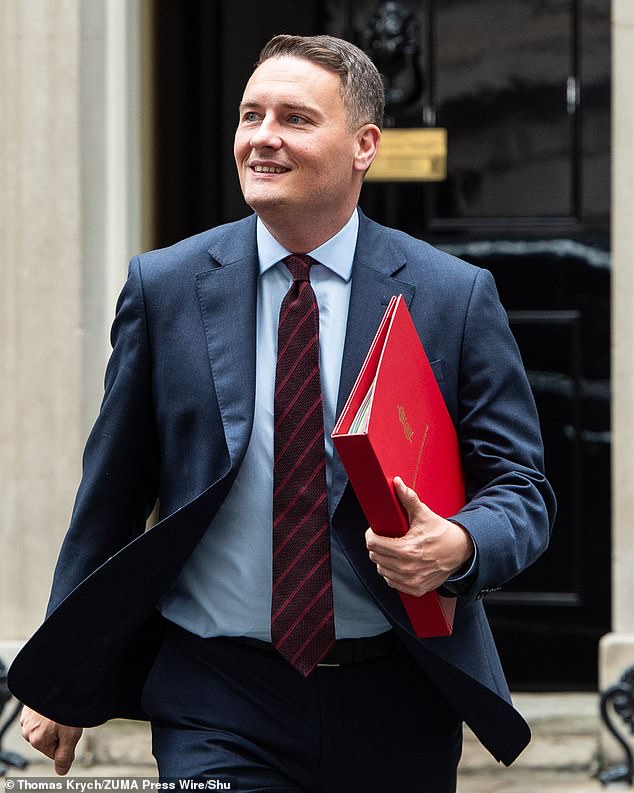Wes Streeting has launched a “raw and honest” review of NHS performance as new figures show rising waits for routine care and ambulances.
The Health Secretary has appointed Professor Lord Darzi, a surgeon and former health minister, to lead the independent inquiry, which will expose “hard truths”.
Its findings will be released in September and will form the basis of the government’s ten-year plan to “radically reform the NHS and build a health service fit for the future”.
The announcement came as NHS England revealed that waiting lists for routine care have increased for the second month running.
An estimated 6.38 million patients were waiting for 7.60 million treatments at the end of May, up from 6.33 million patients and 7.57 million treatments at the end of April.
Wes Streeting has launched a “raw and honest” review of NHS performance as new figures show rising waits for routine care and ambulances.
Meanwhile, ambulances took an average of 34 minutes and 38 seconds to respond to emergency calls such as heart attacks, strokes and sepsis in June.
This is up from 32 minutes and 44 seconds in May, when the target was 18 minutes.
In addition, the proportion of patients who waited no more than 62 days in May from an urgent referral for cancer to the start of treatment was 65.8 percent, down from 66.6 percent in the previous month.
Mr Streeting said: ‘Anyone who works in or uses the NHS can see it is broken.
‘This government will be honest about the challenges facing the health service and will be serious about how it addresses them.
‘This investigation will reveal harsh truths and I have asked that nothing be hidden.
‘I trust Lord Darzi will spare no effort and I have asked him to speak truth to power.
‘I want a raw and frank assessment of the state of the NHS.
‘This is the necessary first step on the road to recovery for our National Health Service, so that it can be there for us when we need it, once again.’
Professor Lord Darzi said: ‘As every doctor and every patient knows, the first step in tackling any health problem is a proper diagnosis.
‘My work will look at the evidence to understand where we are today and how we got here, so that the health service can move forward.
“This is an important step towards restoring quality of care as an organising principle of the NHS.”
Despite the overall decline in performance, the latest data shows slight improvements in A&E.
The number of people who waited more than 12 hours in emergency departments from the decision to admit to actual admission was 38,106 in June, compared to 42,555 in May.
And 74.6 percent of patients in England were seen in A&E within four hours last month, up from 74.0 percent in May.
Tim Gardner, deputy director of policy at the Health Foundation think tank, said: ‘The election of a new Labour government is a significant moment for the health service, which is arguably experiencing the worst crisis in its 76-year history.
‘While there are no easy solutions, with the right mix of policy changes, innovation and investment, the new government can get the NHS back on its feet.
“Today’s statistics are a stark reminder of the enormous mountain that remains to be climbed.”
Amanda Pritchard, chief executive of NHS England, said: ‘Frontline NHS staff are doing an incredible job, despite the huge pressures they face, to provide care for more than a million people every day, but we know they face huge struggles and patients are not always receiving the timely, high-quality care they need.
“We will work closely with the government, independent experts and NHS staff to analyse in detail the scale of the challenges and set out plans to address them; this comprehensive analysis will be an important step in helping us build an NHS fit for the future.”

